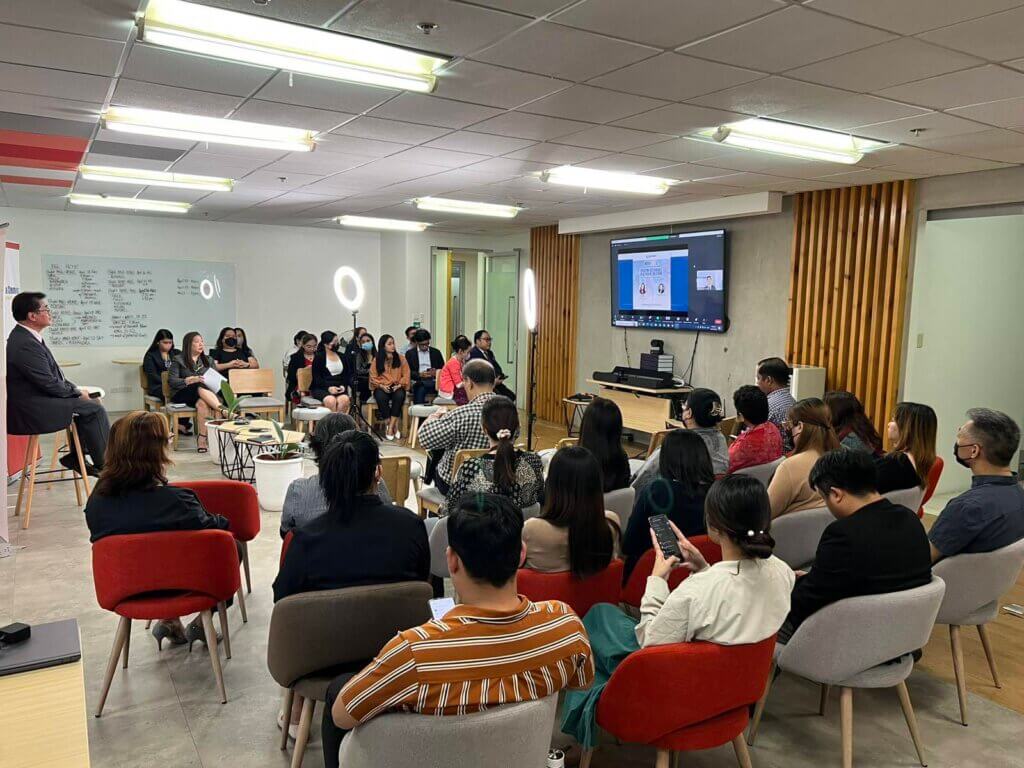The 7th Weekly with JC session tackled healthy lifestyles and creating sustainable healthcare solutions for the increasing number of cases of noncommunicable diseases in the Philippines. Our esteemed speaker was Ms. Lotis Ramin, Country President of AstraZeneca Philippines, and joining her as reactor was Dr. Diana Edralin, General Manager of Roche and President of the Pharmaceutical and Healthcare Association of the Philippines (PHAP). The session was hosted by Mr. Mario Biscocho, Senior Vice President and Managing Director of the Executive Search & Selection Division, and moderated by Ms. Alina Manaig, Assistant Vice President of Professional Staffers.
Filipinos have been battling noncommunicable diseases (NCD) for a very long time. These diseases, such as diabetes, kidney failure, and lung disease, are often results of unmonitored lifestyles, and this is why it is the common cause of death for many Filipinos. Because of this, healthcare providers, government agencies, and the private sector play a crucial role in understanding and recalibrating the Filipino lifestyle, which would greatly help towards creating advanced healthcare solutions in the Philippines.

Ms. Ramin started the session by saying that addressing the unmet needs of society is highly necessary in determining possible solutions for the said diseases and this may serve as future reference. She shared that within a span of 10 years, deaths from noncommunicable diseases showed a double-digit increase, and 68% of all deaths in the Philippines are caused by these diseases. Fortunately, the pharmaceutical industry is doing its best to come up with medicines and preventive actions to further understand the needs of patients. She also placed emphasis on early prevention, intervention, diagnosis with proper education, and lifestyle modification. Recalibrating our lifestyle on a day-to-day basis could make a huge impact in decreasing the numbers of NCD-related deaths. Ms. Ramin added that they are also creating partnerships with different pharmaceutical companies to further create solutions for these unmet needs. Both private and public stakeholders could become major supporters in giving enhanced access to healthcare benefits. Through research and collaboration, we can help generate positive outcomes.

It is highly necessary for us to clearly determine factors that cause these unmet needs of patients or would-be patients. Dr. Diana Edralin agreed that healthcare in the Philippines is gradually becoming too expensive, making it harder for Filipinos to gain access. Activating LGU participation, through public-private partnerships can lead to massive control and support for the needs of patients. Paying attention to the importance of early detection, screening, and prevention is also significant, for it is a strategy that these sectors could use in providing enhanced healthcare solutions. Dr. Edralin added that shaping policies and decisions for more accurate actions and solutions needed by our society is paramount. These include clinical trials to effectively generate local data and early access to treatment. Due to fast-paced modernization, digitalization has something to offer for every community in the Philippines, bringing solutions and interventions closer to patients using technology (smart phones and computers). With the growing population and continuous globalization, increasing investments in healthcare can accelerate the implementation of the universal healthcare system and cancer control. Lastly, it is equally important to cultivate the innovation mindset and create more public-private partnerships to make a more significant impact on the lives of many Filipinos.
Please visit our events page to learn more about our previous and upcoming events!





